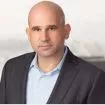Yik Yak arrests. For several months now we at Socially Aware have been writing about how college students have been using the purportedly anonymous messaging app Yik Yak to communicate deeply offensive remarks and threats of violence. Now The Huffington Post reports that students at seven universities have been arrested for doing just that. Since September, at least 11 students at colleges including the University of Georgia and Penn State have been charged with everything from unlawful use of a computer to harassment for using Yik Yak to threaten violence. Police and college IT services departments have been tracking down the students based on their IP addresses and, when available, GPS locations—information that Yik Yak has reportedly been consistently willing to surrender. As my colleague Sue McLean warned in June, "The truth is that 'anonymous' doesn't necessarily mean anonymous. Even if users are not required to provide any form of contact details to use an anonymous app, the app is very likely to collect certain information that will help identify the user." Based on the $63 million that Yik Yak secured in its third round of funding, investors seem to be turning a blind eye to the apparently compromised anonymity that the app provides.
YouTube for tots. A recent study shows that the video sharing site YouTube is the most popular website among U.S. children between the ages of eight and 11. Despite the site's professed age restrictions, which require a user to be at least 13 to create an account, 69% of the 500 tweens recently surveyed by the Chicago-based agency The Marketing Store said they have a YouTube account, and 93% say they use the service regularly. Google, YouTube's owner, has reportedly been trying to develop a kid-friendly version of the video sharing site. In order to do so, Google would need to be careful not to run afoul of the Children's Online Privacy Protection Act, or COPPA, which imposes strict limits on how companies can collect information on children under 13.
License to hack. According to data security experts, the ride-sharing start-up Uber's lack of privacy protections and stash of GPS-quality-precision travel information make it more of an espionage target than "any private entity of any kind." The detailed data the company collects would be especially valuable to maliciously motivated foreign powers—Uber is popular with Washington's political class—as well people involved in corporate espionage and acrimonious divorces. Therefore, a data security expert advises, when traveling to sensitive meetings or secret rendezvous, Uber users interested in protecting their privacy should take steps like "requesting a ride to another nearby address." While such measures may catch on with the tin foil hat crowd, we suspect that they are less likely to find acceptance with average Uber user.
Because of the generality of this update, the information provided herein may not be applicable in all situations and should not be acted upon without specific legal advice based on particular situations.
© Morrison & Foerster LLP. All rights reserved
